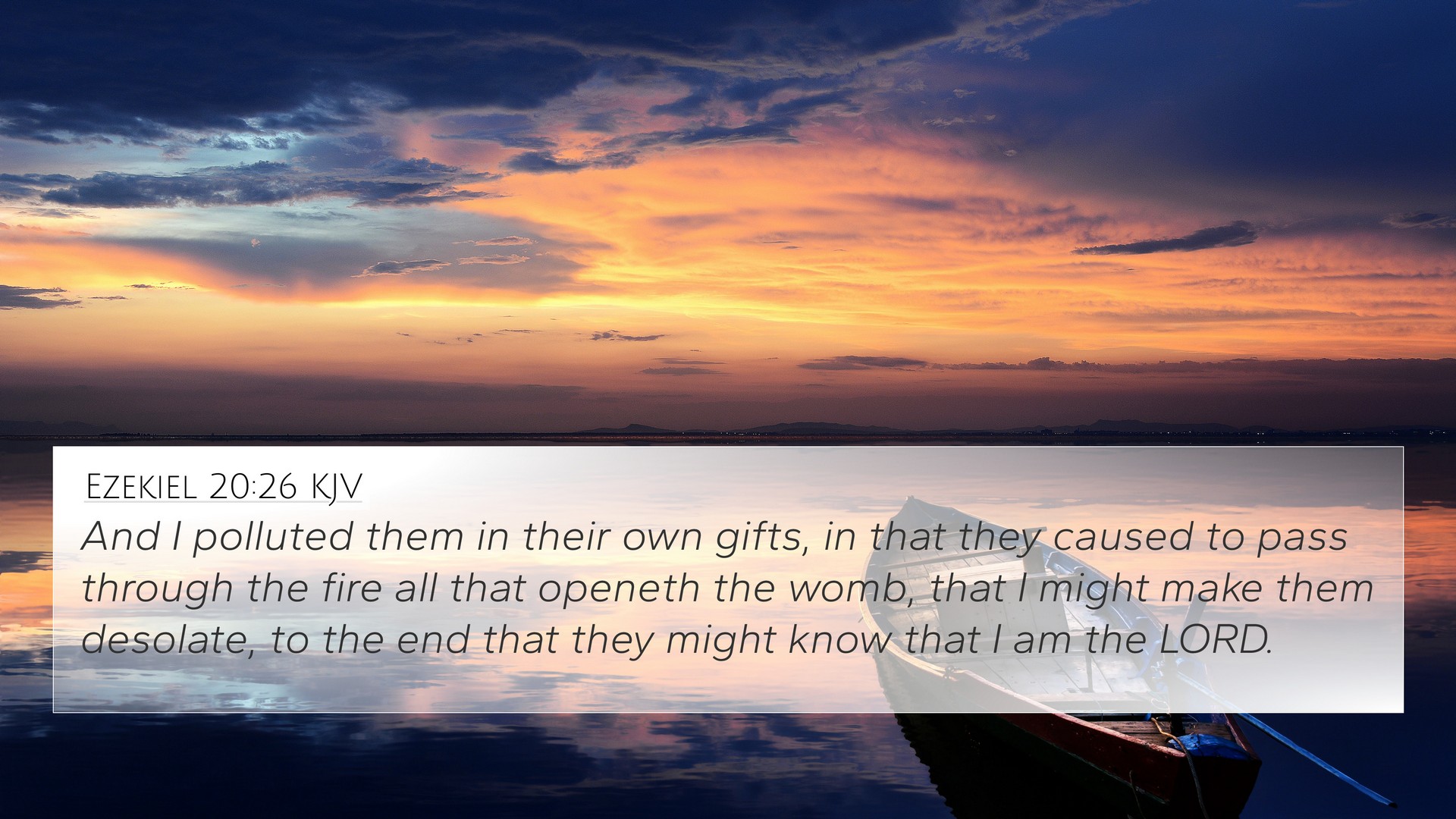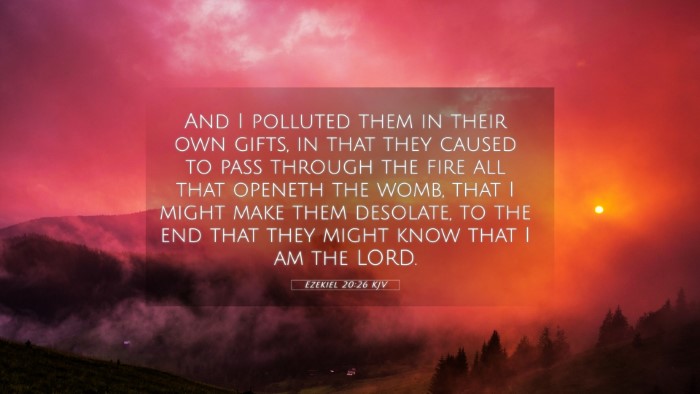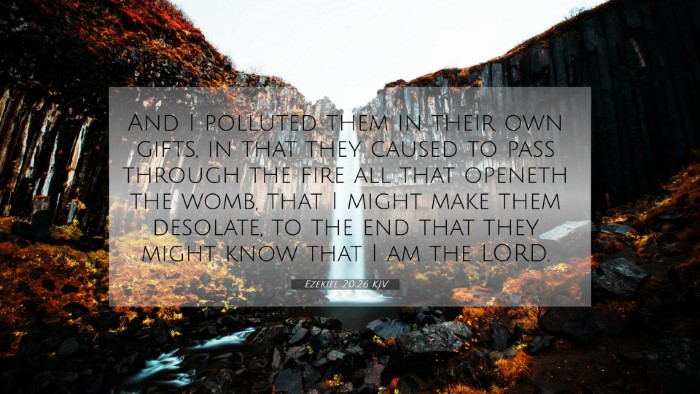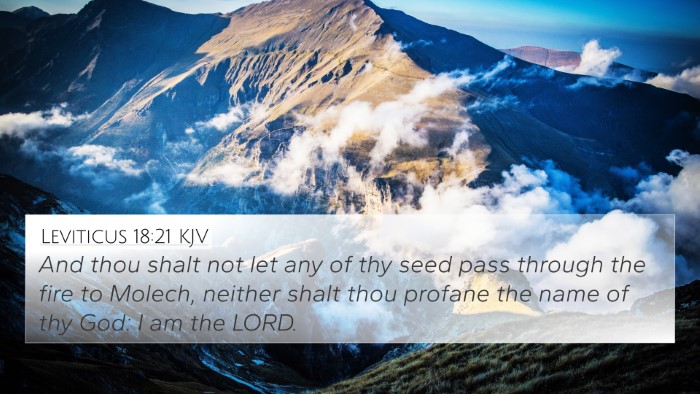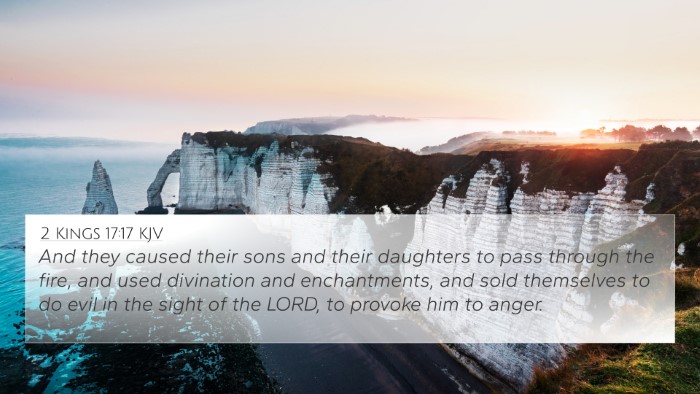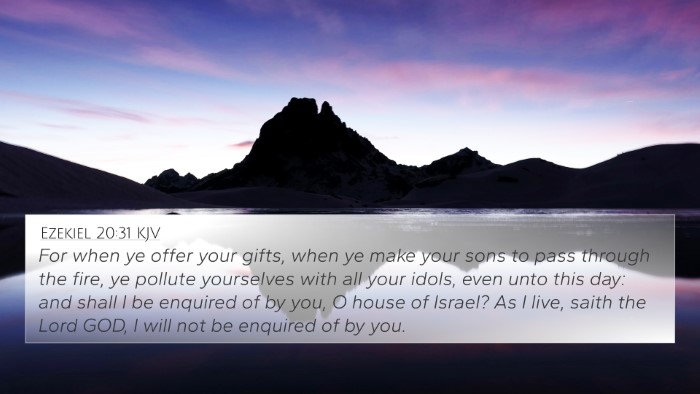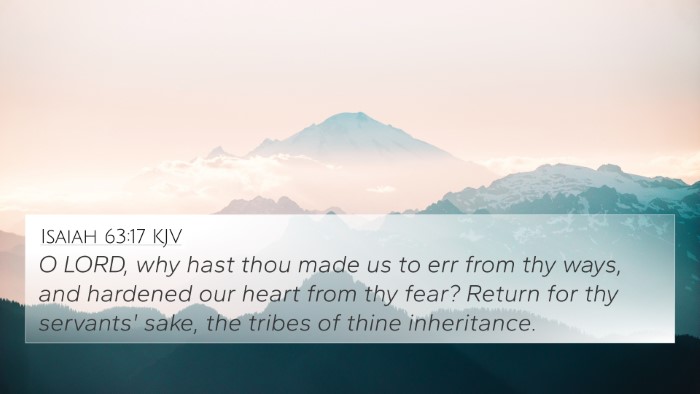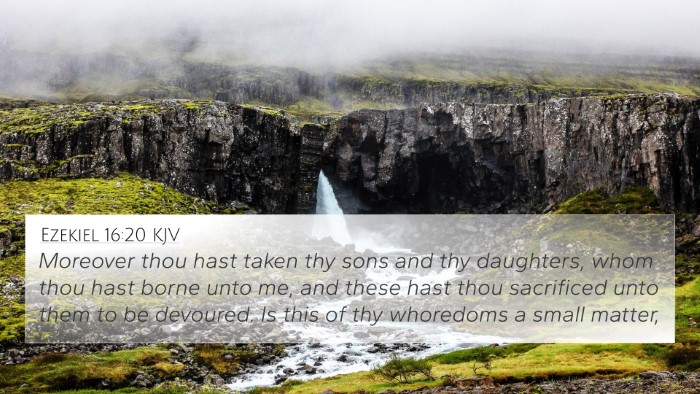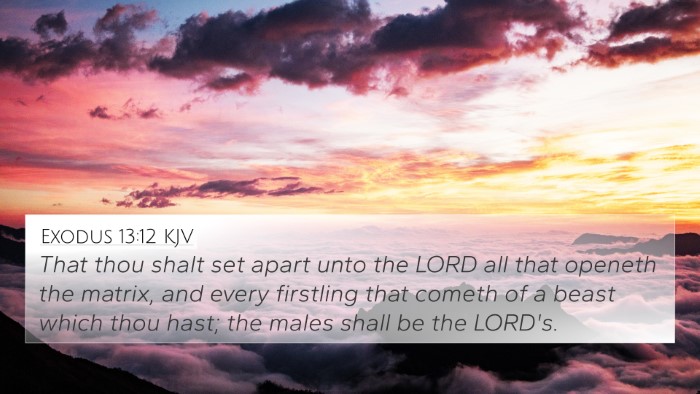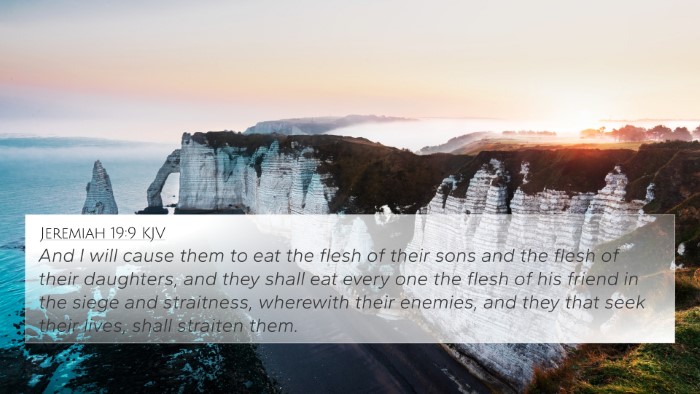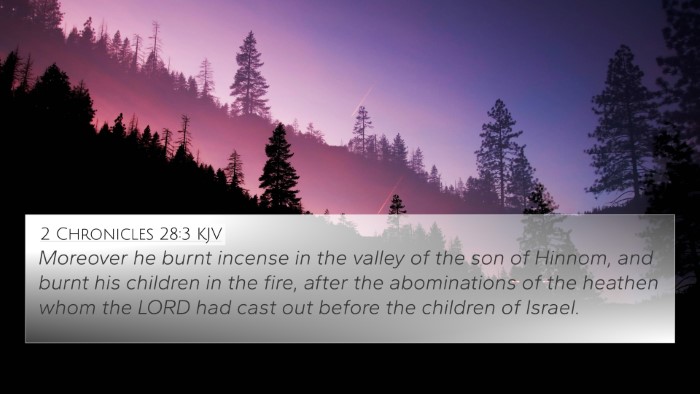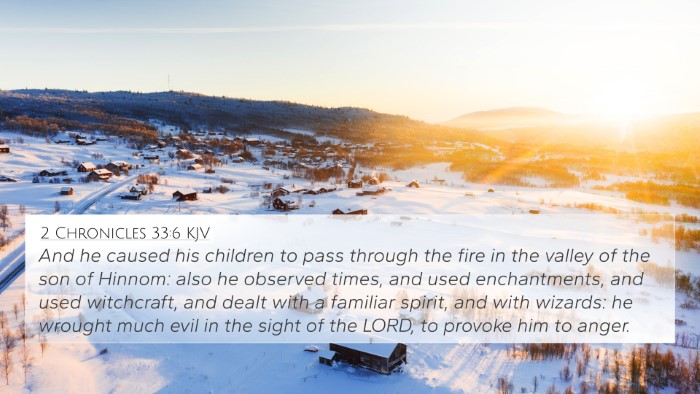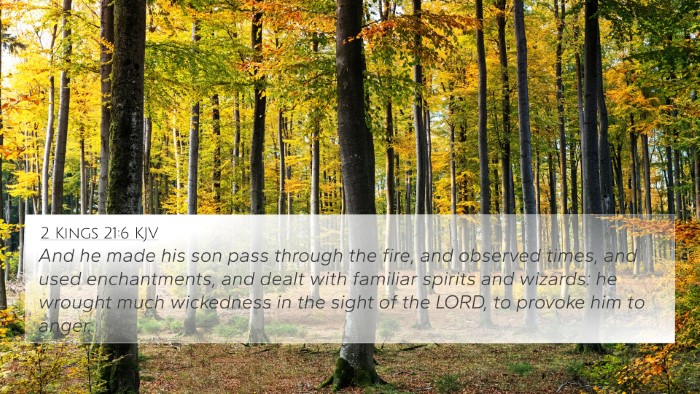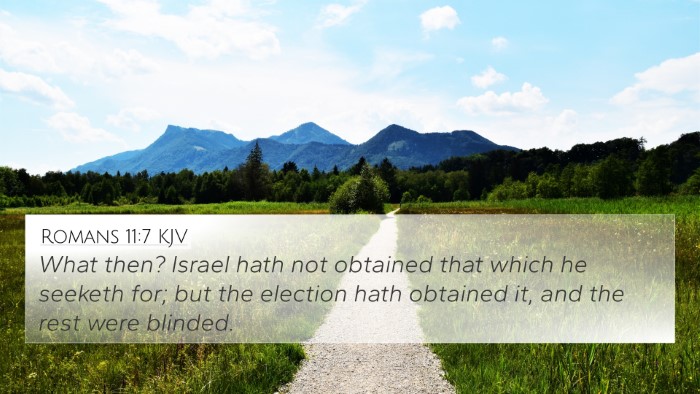Ezekiel 20:26 - Meaning and Interpretation
Bible Verse: Ezekiel 20:26
"And I pronounced them unclean because of their gifts, in that they caused all their firstborn to pass through the fire, that I might make them desolate, to the end that they might know that I am the Lord."
Summary of Insights
This verse captures a profound moment in the history of Israel as it communicates God's feelings towards the practice of child sacrifice and the spiritual state of His people. The act of causing the firstborn to pass through the fire is a direct reference to a pagan ritual that was contrary to the covenant ideals of Yahweh. This theme resonates throughout Scripture, highlighting God's intention to purify His people and reveal His holiness.
Commentary Insights
-
Matthew Henry:
Henry emphasizes the gravity of sin manifested in the act of child sacrifice. He interprets this verse as God's judgment against Israel for adopting pagan practices. The unclean state that God pronounces upon them signifies a severe disconnection from divine presence. His severe actions reveal the lengths God will go to in order to draw His people back to Himself.
-
Albert Barnes:
Barnes' commentary focuses on the process of revelation and understanding. He points out that God's pronouncement of their actions was not simply punitive but aimed to teach them about His character. The phrase "that they might know that I am the Lord" emphasizes God's desire for recognition and acknowledgment from His people, in contrast to their idolatry.
-
Adam Clarke:
Clarke highlights the sociocultural context, explaining that the Israelites adopted foreign worship practices that included burning their children. He notes that God’s actions served as a warning to ensure no one would forget His laws. This serves as a lesson on the consequences of sin, showing that God desires loyalty and obedience from His followers.
Bible Verse Cross-References
To gain a comprehensive understanding of Ezekiel 20:26, it is essential to explore related scriptures. Here are some notable cross-references:
- Leviticus 18:21: This verse explicitly forbids child sacrifice and establishes God’s laws regarding holiness.
- Deuteronomy 12:31: It condemns practices of the nations and reassures Israel to not imitate their rituals.
- Jeremiah 7:31: Refers to child sacrifice in the context of prophetic warning, reinforcing God’s stance against such acts.
- 2 Kings 17:17: Details Israel's sins including child sacrifice, leading up to their exile, reflecting God’s judgment.
- Psalms 106:37-38: Highlights the abominations committed by Israel and the dire consequences of their actions.
- Isaiah 57:5: Recalls the engaging in child sacrifice as an act that provokes God's anger.
- Micah 6:7: Questions what might please God, reflecting on sacrifices versus righteousness.
- Hebrews 10:31: Emphasizes the severity of falling into the hands of the living God — a warning reflective of Ezekiel's message.
Connections between Bible Verses
Ezekiel 20:26 invites believers to consider the broader narrative of sin, judgment, and redemption throughout scripture. The connections between these verses help illuminate themes such as:
- God’s holiness and the uncleanliness of sin.
- The consistent warning against idolatry and false worship.
- The portrayal of God's desire for His people to recognize Him as their God.
- The consequences of spiritual neglect and societal practice.
Comparative Bible Verse Analysis
The concept of child sacrifice can also be compared across both the Old and New Testaments, illustrating a consistent message about the gravity of sin and the nature of God’s preferences for worship. Through cross-referencing, we see how ancient practices are echoed in contemporary faith issues.
Bible Study Tools for Cross-Referencing
- Bible Concordance: A tool that helps locate passages that discuss similar themes or subjects.
- Bible Cross-Reference Guide: A structured way to see connections between various scriptures.
- Cross-reference Bible Study: Methods of studying the Bible by examining interconnected verses.
Conclusion
In Ezekiel 20:26, the themes of divine judgment and the call for repentance stand central to its message. The verse speaks to the importance of understanding God's holiness and the tragic consequences of turning away from His commands. By leveraging tools for Bible cross-referencing, one can enrich their study of the Scriptures, uncovering deeper insights into God’s character and His dealings with mankind.
